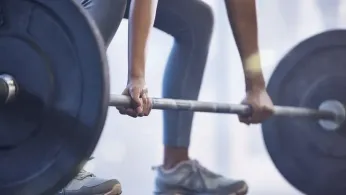
3 hours ago
Minnesota Supreme Court to Rule on Transgender Athlete's Right to Compete in Women's Powerlifting
Steve Karnowski READ TIME: 2 MIN.
The Minnesota Supreme Court was expected to rule Wednesday on whether a transgender athlete should be allowed to compete in the women’s division at powerlifting events.
Attorneys for JayCee Copper argued before the court in December that she's protected against discrimination by the Minnesota Human Rights Act.
But lawyers for USA Powerlifting said it had a legitimate reason for barring Cooper from competing in its women’s division, and that women's sports would suffer if her arguments prevail.
The sports group rejected Cooper’s application in 2018 to compete in its women’s division. Cooper sued in 2021, and a trial court sided with her.
But the Minnesota Court of Appeals sent the case back to the trial court, saying there were “genuine issues of fact” about whether USA Powerlifting excluded Cooper because of her transgender identity and whether the organization had a “legitimate business reason” for doing so. Cooper then took the case to the state’s highest court.
Cooper’s attorney, Christy Hall, said USA Powerlifting’s policy discriminates against all transgender women, regardless of their individual physical capabilities, and urged the justices during oral arguments in December to reverse the Court of Appeals decision.
But an attorney for USA Powerlifting, Ansis Viksnins, argued then that female transgender powerlifters have a significant advantage in a sport that relies inherently on strength. He told reporters then that performance differences provide a “legitimate, nondiscriminatory reason” to exclude transgender females from its women’s division, and that the group deserves a chance to make that argument to a jury.
Transgender people’s participation in sports has been a contentious issue across the country. According to the Movement Advancement Project, a nonprofit that says it works to advance equality and opportunity for all, 29 states bar transgender women and girls from competing in at least some women’s or girls competitions, though some of those bans have been blocked by court orders.
The Minnesota Human Rights Act contains broad protections against discrimination, including on the basis of sex defined broadly, and was updated in 2023 to specifically include gender identity.
In an indication of the intense interest in the Minnesota case, numerous athletes and organizations on both sides filed friend-of-the-court briefs, including former tennis champion Martina Navratilova, who was part of a group of 83 female athletes backing USA Powerlifting’s position.
Since the legal arguments were based largely on how the courts should interpret Minnesota law, the decision doesn't set a binding precedent for other states. But courts elsewhere faced with similar issues could choose to draw on the legal reasoning behind it.






